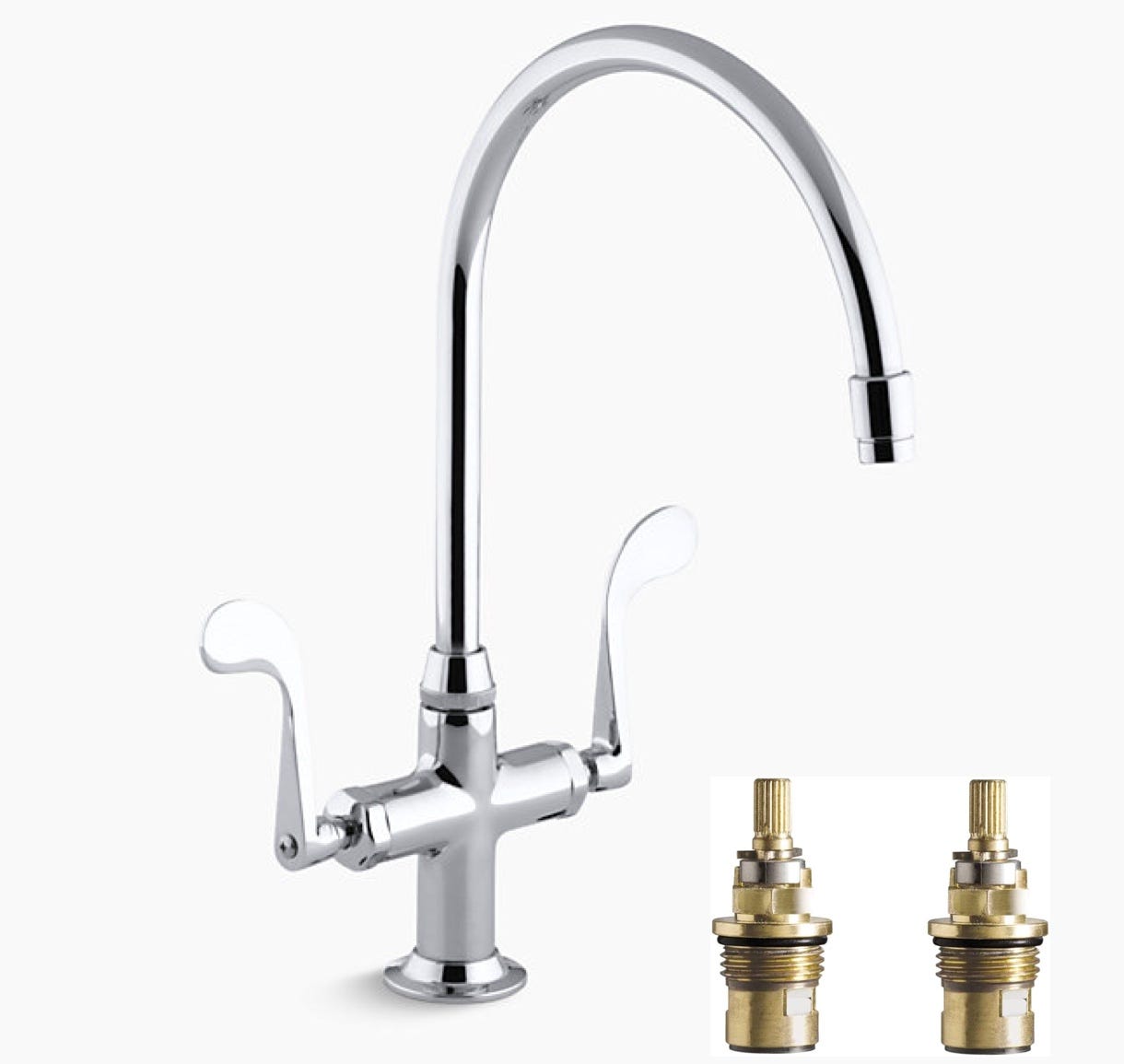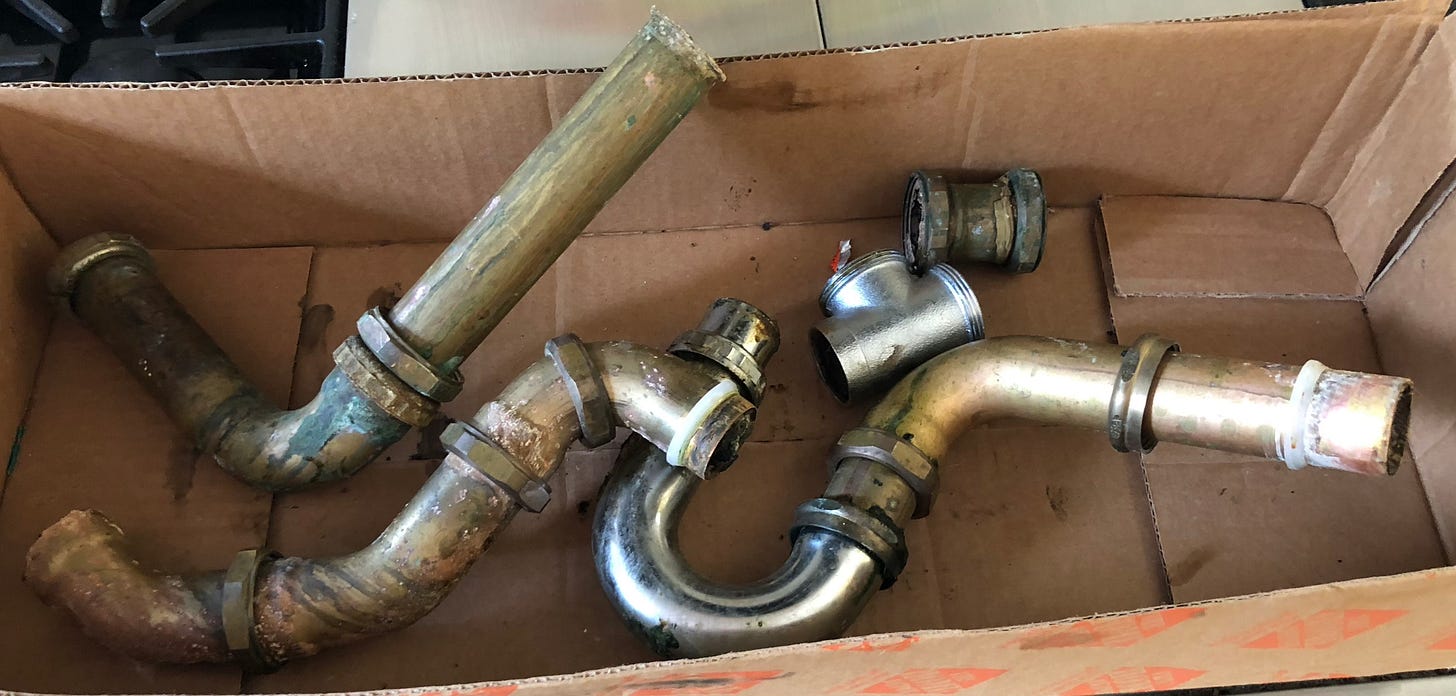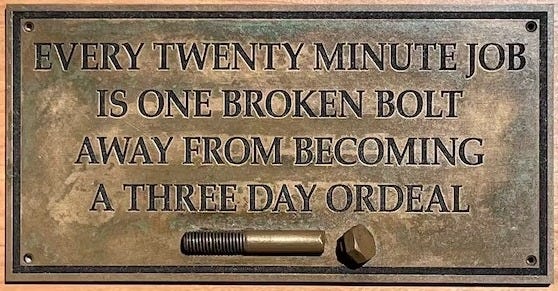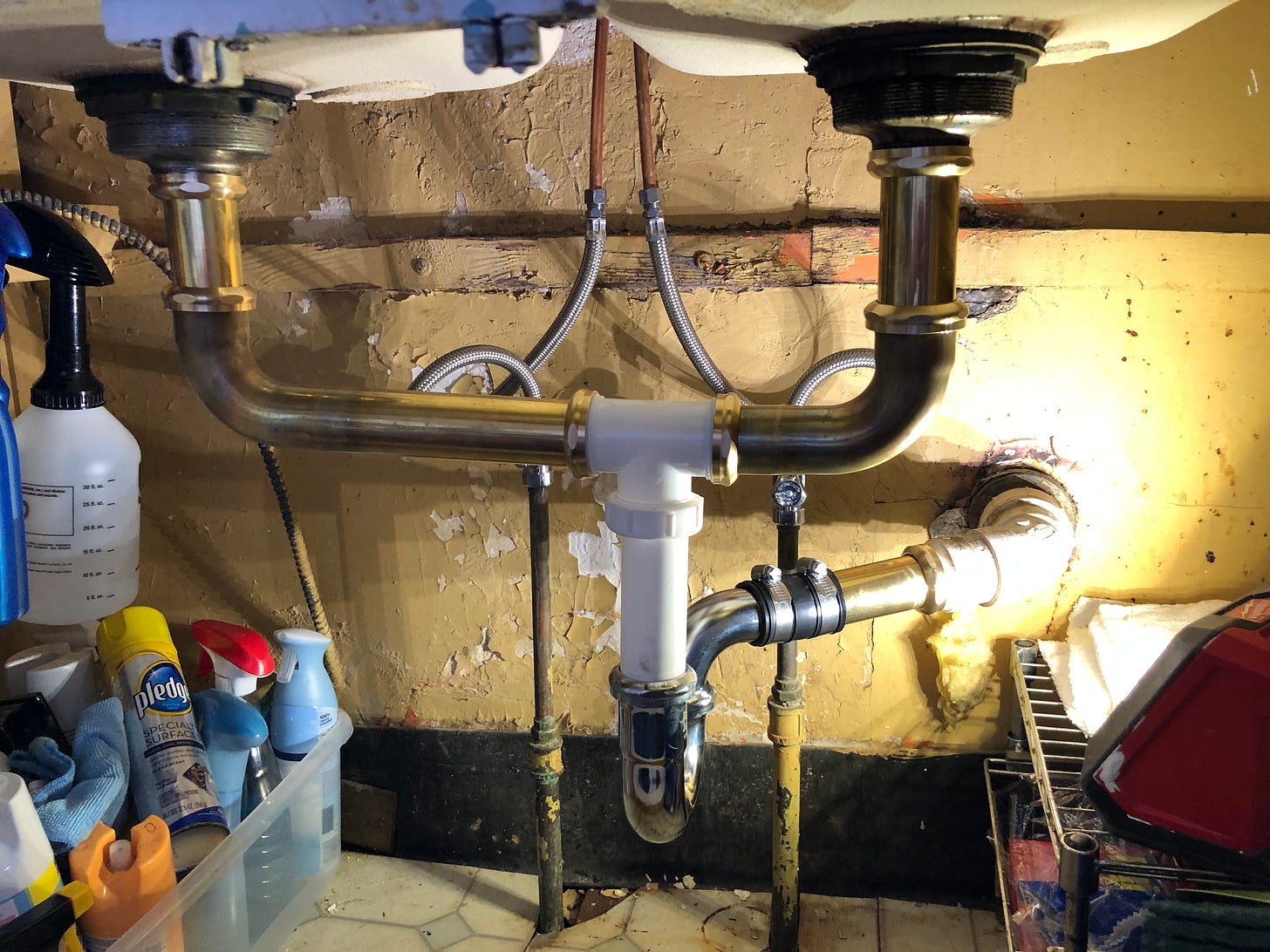My brother walked into a bakery in his (affluent, but not 1%) Long Island neighborhood the other to buy a cake for his daughter's upcoming birthday. He asked for the price on a 10 inch heart-shaped red velvet layer cake with cream cheese frosting.
He was quoted $137.
After he picked his jaw up off the floor, he asked "why so much?"
"Because it's shaped like a heart. You don’t understand how much labor is involved!”
My brother, my partner in running the family restaurant across two decades, knows how to bake. As in, he learned from our OG in-house baker. As in, he did all the restaurant’s baking himself for a couple years (including, I estimate, at least four thousand cheesecakes), and substituted in whenever we had problems with whomever we had hired at any given time. Want to run a restaurant? Learn every job, so no one can hold you hostage.
That makes him a professional baker, so, yes, yes he does.
He replied "heart-shaped cutter on a sheet of sponge," then asked how much for a round cake.
He was quoted $150.
"Goodbye," he offered as he turned around to leave.
"Wait, wait! I can sell you an 8 inch for $87!"
He kept walking. At that price point, he decided it was worth his time to simply make the cake himself.
Last week, I finally got around to addressing a small leak from the valves of our kitchen faucet. Kohler, which provides lifetime warranties on such products, was very helpful, and sent me the replacement valve cartridges free of charge. The sales rep told me that instructions were included, to which I quipped "great, I can turn a screwdriver." She lamented "great, you're ahead of most people."
The valve swap was easy… until I turned the faucet on and got only a trickle from the hot water side.
Oh, those dreaded “conditions in the field.”
Clearly, some little bit of something got into something else. Several corrective attempts later, I concluded that I needed to remove the faucet entirely to try and resolve it.
When I got under the sink, I bumped, ever so slightly, one of the drain pipes. It cracked off the bottom of the sink. Ah, the joy of old houses. Five seconds of inspection later, I concluded that I needed to swap the whole kit and caboodle.
The five minute faucet job turned into a full day effort, much of it procurement and compromise (when the plumbing supply is out of stock on a critical part, and Home Depot only has it in plastic, you make do) and installation.
Taking the faucet out was a pain (literally - back, hip, and more), but I got it working properly (and drilled out the ports to get better water pressure). Pro tip - when working under a sink, put a board across the bottom of the cabinet to lie down on. The actual double-drain install, once I got all the parts I needed, only took about half an hour.
I posted about this on Facebook, and a friend noted "Isn’t it great when you can save about $650?"
A plumber fixes a damaged pipe in a doctor’s house and asks for $200.
Doctor: “Even I don’t make so much money in such a short period. And I’m a doctor.”
Plumber: “I know, sir. I used to be a doctor myself.”
That's today's sad reality. The crazy prices we see in the world are not just inflation (thanks, Joeb!), but a reflection of diminished breadth of practical skills, especially in urban centers.
I decided, as did my brother, that I'd rather do the job myself than pay stupid money to someone else. A couple years ago, I called a plumber to snake a bathroom drain line, because I didn't feel like getting dirty, and almost stroked out when he charged me $500.
That said, I know my DIY limits, and I don't mind paying for services beyond my skill set.
Which (finally) brings me to today's point: I have chosen to built a (decidedly not very particular, apologies to Liam Neeson) set of skills, and I will continue seeking to add to it until I shuffle off this mortal coil. Few things are rocket science (I’d know, wink wink) and fewer things are magical mystery.
And which brings up a recollection, from the movie Caddyshack.
Danny Noonan : I haven't even told my father about the scholarship I didn't get. I'm gonna end up working in a lumberyard the rest of my life.
Ty Webb : What's wrong with lumber? I own two lumberyards.
Danny Noonan : I notice you don't spend too much time there.
Ty Webb : I'm not quite sure where they are.
Ty Webb was a rich idler, a self-described "veg," with so much money that the hundreds of thousands of dollars in uncashed checks that littered his home were of little matter. It appears that his fortune was hereditary and, most germanely, very dependent on others’ skills and performance.
I don't begrudge the eight percent of the millionaires in America who inherited. Somewhere in time, somebody made that money, and the ancestor has the right to decide where that money goes after he or she dies. Certainly, more right than all the enviers who want the government to tax those estates, and more right than the politicians who covet that money. I also know better than most the importance of business owners and the skills they bring to the table. Many inheritors build on their ancestors’ successes, creating more wealth and more jobs, but that’s an aside and a topic for another day.
Today’s lament is about those who look at not-too-difficult manual skills with bewilderment. While I'm not saying that everyone should be able to plumb a double sink, I have met too many who are scared snotless of swapping a light switch.
Thing is, I wasn't born knowing how to plumb a double sink. While I had a natural interest in tools as a kid, it was the existence of a wood shop in my middle/high school that set me on the path. Once you learn to turn that screwdriver and swing that hammer, you have the foundation to learn more stuff. Manual skills transfer, as does the mindset that goes with them. Doing new things adds to the knowledge and skills set, and like mulligan stew, that set grows richer with every addition.
Sadly, when the shop teacher who taught me and my brother and so many others in our school retired, the shop went away, and with it the opportunity for the kids who attended afterward to build a core set of manual skills.
This, in turn, makes them hostage to usurious bakers and we-all-know-they're-expensive plumbers.
Television personality and trades advocate Mike Rowe offers the same message, as did Bob Vila and his successors at This Old House, and as did a proliferation of DIY channels and home improvement stores. Concurrently, the crazy cost of college education may finally be enlightening people to the idea that a job in the trades is a better career path than a degree in Basket-Weaving in Ancient Cultures.
Self-reliance is a trait that starts young. Whether it be woodworking, cooking, or other manual skill, the sense of "I can do this" builds over time, and is best seeded early if it’s to grow long limbs and deep roots.
Therein lie the foundations for a broader sense of independence vs dependence, of "I will find my way in life" vs "I need something external, like the government, to run my life for me."
While plumbing (or baking) is not for everyone, the mindset I speak of here can be fostered in many different ways, and via any of countless skills. At the heart of all of them are two fundamentals:
Few things in life are truly difficult.
We should never stop learning.
Embrace self-reliance and teach it to the young. Independence and self-confidence will ensue, and a love of liberty will follow.











We are very fortunate that our local high school has a large and extremely impressive wood/metal/welding shop. I told my (unfortunately not mechanically-blessed) soon-to-be freshmen son that he *WILL* take at least one year of that class at some point during his time there, like it or not!
Out of curiosity... How much of the price for this kind of work is a reflection of genuine market forces versus some people organizing some kind of racket by which certain skills are artificially priced (upwards)? My own skills in the DIY department are mediocre at best -- although I generally attempt fixing most things myself, and do a poor job, which on rare occasions fail to impress my partner, and then need a professional. And so it seems hard to believe that there wouldn't be more people interested in making money in those professions.
Living in NYC, I can however say that plumbing in particular is such a heavily regulated area of work that the people who make it to the point of being "employable" (given also the rules of many multi-unit homes, enforcing all kinds of certifications, etc.) are really incredibly expensive. Is that true also in other parts of the country...?